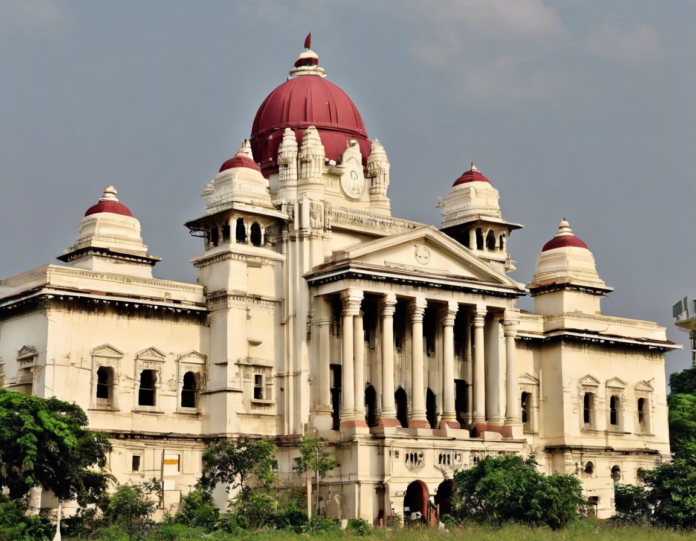The legal landscape surrounding the creation and enforcement of laws is intricate and multifaceted. High courts play a crucial role in interpreting laws, settling disputes, and upholding the rule of law within a jurisdiction. In this article, we will delve into the workings of high courts, their significance, and their impact on society.
Understanding High Courts
High courts are typically the highest judicial authority within a state or country. They have the power to review and overturn decisions made by lower courts, interpret laws, and ensure that justice is served. High courts are crucial in upholding the constitution and safeguarding individual rights and liberties.
Jurisdiction and Functions
High courts have a wide jurisdiction, overseeing both civil and criminal cases. They typically hear appeals from lower courts and have the authority to review decisions on points of law. High courts also have the power to issue writs, such as writs of habeas corpus, mandamus, certiorari, prohibition, and quo warranto, to ensure that government authorities act within the bounds of law.
The Role of High Courts in Upholding the Rule of Law
High courts play a critical role in upholding the rule of law within a society. By providing checks and balances on the powers of the executive and legislative branches, high courts ensure that the government operates within the confines of the constitution. High courts also protect individual rights and liberties by striking down laws that are unconstitutional or violate fundamental rights.
Landmark Decisions
Over the years, high courts have delivered numerous landmark decisions that have shaped legal precedent and influenced societal norms. These decisions have addressed issues ranging from civil rights and equality to environmental protection and corporate governance. High courts have the power to set legal standards and guide future judicial rulings.
The Importance of Judicial Independence
One of the key principles underlying the functioning of high courts is judicial independence. Judges are expected to adjudicate cases impartially, without any external influence or pressure. Judicial independence is crucial for upholding the rule of law and ensuring that justice is served fairly and equitably.
Appointment and Tenure of Judges
Judges of high courts are typically appointed by the president or governor on the advice of the prime minister or chief minister, in consultation with the chief justice of the respective high court and the collegium system. Judges hold office until they reach the retirement age, which is usually around 65 years.
Challenges Facing High Courts
Despite their critical role in upholding the rule of law, high courts face various challenges in discharging their duties effectively. These challenges include delays in case disposal, backlog of cases, lack of infrastructure, and the need for judicial reforms to enhance efficiency and transparency in the judicial system.
Reforms and Modernization
Efforts are being made to modernize and streamline the functioning of high courts through the use of technology, alternative dispute resolution mechanisms, and capacity building for judges and court staff. Judicial reforms aim to address systemic issues and improve access to justice for all members of society.
Conclusion
In conclusion, high courts are the cornerstone of the legal system, providing a forum for the adjudication of disputes, the interpretation of laws, and the protection of individual rights. By upholding the rule of law and ensuring justice for all, high courts play a vital role in maintaining the fabric of society and promoting a fair and just legal system.
Frequently Asked Questions (FAQs)
1. What is the difference between a high court and a supreme court?
A high court is typically the highest court within a state or country, with jurisdiction over a specific geographical area. In contrast, a supreme court is the highest judicial authority in a country and has the power to adjudicate on constitutional matters and hear appeals from lower courts.
2. How are judges appointed to high courts?
Judges of high courts are usually appointed by the president or governor on the advice of the prime minister or chief minister, in consultation with the chief justice of the respective high court and the collegium system.
3. What are the powers of a high court?
High courts have the power to review decisions made by lower courts, interpret laws, issue writs to government authorities, and ensure that justice is served. They play a crucial role in upholding the constitution and protecting individual rights.
4. How can the backlog of cases in high courts be reduced?
Efforts to reduce the backlog of cases in high courts include the use of technology, alternative dispute resolution mechanisms, and judicial reforms aimed at enhancing efficiency and transparency in the judicial system.
5. What is the significance of judicial independence in high courts?
Judicial independence is crucial for upholding the rule of law and ensuring that judges can adjudicate cases impartially, without any external influence or pressure. It is essential for maintaining the integrity and credibility of the judicial system.
